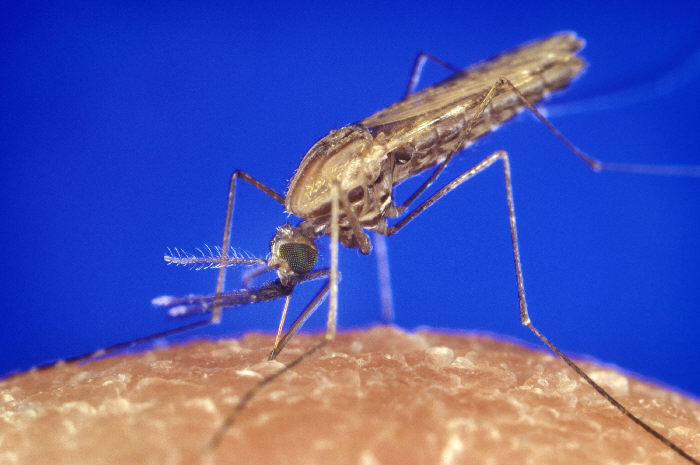 We’ve all made two personal observations about mosquitoes. First, we don’t like them, and for good reason. At best, mosquitoes are a minor irritation and at worst, they give you a deadly disease. For example, in Africa, the mosquito Anopheles gambiae is a major vector for malaria. Second, mosquitoes tend to come out in force as the sun is setting. Thanks to work by Samuel Rund and his colleagues from the University of Notre Dame, we now know why that might be. Mosquito feeding behavior is tied to the creatures’ circadian rhythms.
We’ve all made two personal observations about mosquitoes. First, we don’t like them, and for good reason. At best, mosquitoes are a minor irritation and at worst, they give you a deadly disease. For example, in Africa, the mosquito Anopheles gambiae is a major vector for malaria. Second, mosquitoes tend to come out in force as the sun is setting. Thanks to work by Samuel Rund and his colleagues from the University of Notre Dame, we now know why that might be. Mosquito feeding behavior is tied to the creatures’ circadian rhythms.
Science-- there's something for everyone
Thursday, September 12, 2013
Why mosquitoes attack at night
 We’ve all made two personal observations about mosquitoes. First, we don’t like them, and for good reason. At best, mosquitoes are a minor irritation and at worst, they give you a deadly disease. For example, in Africa, the mosquito Anopheles gambiae is a major vector for malaria. Second, mosquitoes tend to come out in force as the sun is setting. Thanks to work by Samuel Rund and his colleagues from the University of Notre Dame, we now know why that might be. Mosquito feeding behavior is tied to the creatures’ circadian rhythms.
We’ve all made two personal observations about mosquitoes. First, we don’t like them, and for good reason. At best, mosquitoes are a minor irritation and at worst, they give you a deadly disease. For example, in Africa, the mosquito Anopheles gambiae is a major vector for malaria. Second, mosquitoes tend to come out in force as the sun is setting. Thanks to work by Samuel Rund and his colleagues from the University of Notre Dame, we now know why that might be. Mosquito feeding behavior is tied to the creatures’ circadian rhythms.
Subscribe to:
Post Comments (Atom)
No comments:
Post a Comment